|
Books Should Be Free Loyal Books Free Public Domain Audiobooks & eBook Downloads |
|
|
Books Should Be Free Loyal Books Free Public Domain Audiobooks & eBook Downloads |
|
Non-fiction |
|---|
|
Book type:
Sort by:
View by:
|
By: Sarah Knowles Bolton (1841-1916) | |
|---|---|
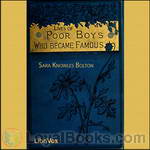 Lives of Poor Boys Who Became Famous
Lives of Poor Boys Who Became Famous
These characters have been chosen from various countries and from varied professions, that the youth who read this book may see that poverty is no barrier to success. It usually develops ambition, and nerves people to action. Life at best has much of struggle, and we need to be cheered and stimulated by the careers of those who have overcome obstacles.If Lincoln and Garfield, both farmer-boys, could come to the Presidency, then there is a chance for other farmer-boys. If Ezra Cornell, a mechanic, could become the president of great telegraph companies, and leave millions to a university, then other mechanics can come to fame... | |
By: Sarah Morgan Dawson (1842-1909) | |
|---|---|
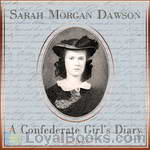 A Confederate Girl's Diary
A Confederate Girl's Diary
Sarah Morgan Dawson was a young woman of 20 living in Baton Rouge, Louisiana, when she began this diary. The American Civil War was raging. Though at first the conflict seemed far away, it would eventually be brought home to her in very personal terms. Her family's loyalties were divided. Sarah's father, though he disapproved of secession, declared for the South when Louisiana left the Union. Her eldest brother, who became the family patriarch when his father died in 1861, was for the Union, though he refused to take up arms against his fellow Southerners... | |
By: Sarah Tyson Heston Rorer (1849-1937) | |
|---|---|
 Sandwiches
Sandwiches
| |
 Made-Over Dishes
Made-Over Dishes
| |
By: Scott Nearing (1883-1983) | |
|---|---|
 The New Education A Review of Progressive Educational Movements of the Day (1915)
The New Education A Review of Progressive Educational Movements of the Day (1915)
| |
By: Seth Low (1850-1916) | |
|---|---|
 Opening Ceremonies of the New York and Brooklyn Bridge, May 24, 1883
Opening Ceremonies of the New York and Brooklyn Bridge, May 24, 1883
| |
By: Sidford Frederick Hamp (1855-1919) | |
|---|---|
 Coco Bolo: King of the Floating Island
Coco Bolo: King of the Floating Island
Sisters Margaret and Frances wait for their younger brother Edward to go for a nap before embarking on the adventure of trying to stand on the heads of their shadows. Daddy sees them and encourages them to chase further adventures of childhood, little suspecting where they will take them. - Summary by Lynne Thompson | |
By: Sidney Licht (1907-1979) | |
|---|---|
 Music in Medicine
Music in Medicine
In spite of a spirited rebirth of the movement towards the establishment of a system of healing based on music, there are many valuable uses of music in medicine which might suffer a like fate unless a critical analysis of the worth of music as a therapeutic agent is effected before Musical Therapy reaches the dubious distinction of classification as a healing cult. This book has been written with a view to preserving for medicine that which is good for patients, and in an attempt to aid musicians under medical guidance in using music to help the sick. | |
By: Sigmund Freud (1856-1939) | |
|---|---|
 Dream Psychology
Dream Psychology
From the dawn of human consciousness, dreams have always fascinated us. Do they mean something? Do dreams help us see into the future? These questions have intrigued us for centuries. Sigmund Freud was one of the first people to examine dreams seriously and interpret them in the context of our waking lives. In Dream Psychology: Psychoanalysis for Beginners, the Austrian psychoanalyst, Dr Sigmund Freud shares his exciting early discoveries that there was indeed a connection between his patients' dreams and their mental disturbances... | |
 Reflections on War and Death
Reflections on War and Death
Anyone, as Freud tells us in Reflections on War and Death, forced to react against his own impulses may be described as a hypocrite, whether he is conscious of it or not. One might even venture to assert—it is still Freud’s argument—that our contemporary civilisation favours this sort of hypocrisy and that there are more civilised hypocrites than truly cultured persons, and it is even a question whether a certain amount of hypocrisy is not indispensable to maintain civilisation. When this... | |
By: Sinclair Lewis | |
|---|---|
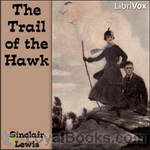 The Trail of the Hawk
The Trail of the Hawk
| |
By: Sir Francis Galton (1822-1911) | |
|---|---|
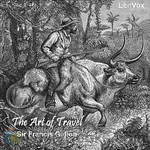 The Art of Travel
The Art of Travel
The Art of Travel is a handbook of practical advice for the adventure seeking Victorian. We hear how to organize all steps of a voyage, from the very beginnings (qualifications of a traveller, how to organize an expedition, the perfect outfit), to the actual trip (how to choose a bivouac, huts and tents, what game to shoot - and how, dealing with (hostile) savages), until the final, hopefully successful, return of the traveller (arranging memoranda). | |
By: Sir Henry Morton Stanley (1841-1904) | |
|---|---|
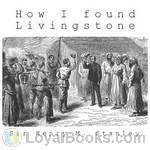 How I Found Livingstone
How I Found Livingstone
Sir Henry Morton Stanley is famously quoted for saying “Dr Livingstone, i Presume?”. Born in Wales, he migrated over to the United States at the age of 18, and eventually became an overseas correspondent for the New York Herald. In 1869 Stanley was told by James Gordon Bennett Jr to find Livingstone, a scottish missionary and explorer, who was lost in central Africa. When Stanley commented on the cost Bennett’s reply was: “Well, I will tell you what you will do. Draw a thousand pounds now; and when you have gone through that, draw another thousand, and when that is spent, draw another thousand, and when you have finished that, draw another thousand, and so on; but, FIND LIVINGSTONE. | |
By: Sir John Barrow (1764-1848) | |
|---|---|
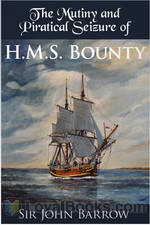 Eventful History of the Mutiny and Piratical Seizure of H.M.S. Bounty
Eventful History of the Mutiny and Piratical Seizure of H.M.S. Bounty
On December 31 1787, the HMS Bounty, a small sailing vessel embarked from Spithead Harbor, England bound for Tahiti. Her mission was sponsored by the Royal Society in London and aimed at picking up breadfruit plants and fruit from Tahiti and conveying them to the West Indies, where it was hoped they would take root and become a commercial crop. The Bounty was an old ship with a young captain and 46 young officers. The captain's cabin was converted into a potting shed for the expected breadfruit cargo... | |
By: Sir Wilfred Grenfell (1865-1940) | |
|---|---|
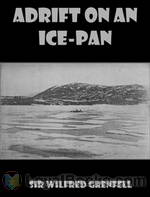 Adrift on an Ice-Pan
Adrift on an Ice-Pan
This autobiographical work describes the author’s harrowing experience caught on a small drifting piece of ice, while crossing a frozen bay by dog team on the Northern Peninsula of Newfoundland. | |
By: Solon Robinson (1803-1880) | |
|---|---|
 Guano A Treatise of Practical Information for Farmers
Guano A Treatise of Practical Information for Farmers
| |
By: St. George William Joseph Stock (1850-?) | |
|---|---|
 Guide to Stoicism
Guide to Stoicism
This book is a primer on the philosophy of stoicism, resurrected from its origins in Greek and Roman philosophy. The original philosophy was based on a reasoning process which it was assumed would lead to a virtuous life. Zeno, the founder of stoicism, did not begin expounding on its teachings until he was in his forties. He believed that the purpose of life was "to live consistently." Cleanthes, his disciple, added "with nature," so that the purpose of life became "to live consistently with nature." | |
By: St. Ignatius Loyola (1491-1553) | |
|---|---|
 The Autobiography of St. Ignatius
The Autobiography of St. Ignatius
This account of the life of St. Ignatius, dictated by himself to Father Gonzalez, is a most valuable record of the great Founder of the Society of Jesus. It, more than any other work, gives an insight into the spiritual life of St. Ignatius. Few works in ascetical literature, except the writings of St. Teresa and St. Augustine, impart such a knowledge of the soul.The saint in his narrative always refers to himself in the third person, and this mode of speech has here been retained. Many persons who have neither the time, nor, perhaps, the inclination, to read larger works, will read, we trust, with pleasure and profit this autobiography... | |
By: Stephen H. (Stephen Haskins) Carpenter (1831-1878) | |
|---|---|
 The Philosophy of Evolution Together With a Preliminary Essay on The Metaphysical Basis of Science
The Philosophy of Evolution Together With a Preliminary Essay on The Metaphysical Basis of Science
| |
By: Stephen Leacock (1869-1944) | |
|---|---|
 Chronicles of Canada -- Dawn of Canadian History: Aboriginal Canada
Chronicles of Canada -- Dawn of Canadian History: Aboriginal Canada
Most readers of Stephen Leacock's works are familiar with his witty and humorous writings, but few may be aware that he was also a gifted teacher, political ideologue, economist and fiction writer. Though he wrote six books on Canadian history, none of them attained the status of a standard text on the subject and were regarded more as opinion pieces without much academic foundation. Yet, the Chronicles of Canada series by Stephen Leacock remains an interesting and entertaining read. In this volume, Dawn of Canadian History: Aboriginal Canada, which is part of a thirty-two book series of short and simple essays, Leacock explores the little known origins of Canada's past... | |
 The Unsolved Riddle of Social Justice
The Unsolved Riddle of Social Justice
This lengthy political essay by noted Canadian humourist Stephen Leacock was written while he was professor of political economy at McGill University. He argues for a middle ground between individualism/capitalism and pure socialism. Listeners in the early 21st century may find this 90-year old essay oddly topical. | |
 My Discovery of England
My Discovery of England
"In the course of time a very considerable public feeling was aroused in the United States and Canada over this state of affairs. The lack of reciprocity in it seemed unfair. It was felt (or at least I felt) that the time had come when some one ought to go over and take some impressions off England. The choice of such a person (my choice) fell upon myself. By an arrangement with the Geographical Society of America, acting in conjunction with the Royal Geographical Society of England (to both of whom I communicated my proposal), I went at my own expense."And from thence follow the impressions of Canadian political economist and humourist, Stephen Leacock, after a lecturing visit to England. | |
By: Steve Solomon | |
|---|---|
 Gardening Without Irrigation: or without much, anyway
Gardening Without Irrigation: or without much, anyway
Gardening expert Steve Solomon has written extensively on gardening techniques for the home gardener. Water conservation is the focus of this work, along with more information on how to have the healthiest plants in your garden through “fertigation”, appropriate plant rotation, and soil preparation. | |
 Organic Gardener's Composting
Organic Gardener's Composting
The art and science of composting is presented in a humorous and readable manner from the basic elements to the in-depth science. An entire chapter is devoted to composting with red worms (vermiculture), and detailed information is provided on building different types of composting units. The history of the organic gardening movement is included as well as an annotated bibliography of works on the subjects of composting and food gardening. | |
By: Stewart Edward White (1873-1946) | |
|---|---|
 Camp and Trail
Camp and Trail
| |
By: Susan Coolidge (1835-1905) | |
|---|---|
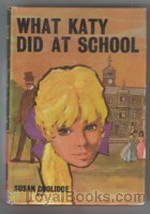 What Katy Did at School
What Katy Did at School
The continuing story of Katy Carr, recounting the time she spent at boarding school with her sister Clover. | |
By: Susan Edmonstoune Ferrier | |
|---|---|
 Marriage, Volume 1
Marriage, Volume 1
“Love!–A word by superstition thought a God; by use turned to an humour; by self-will made a flattering madness.” – Alexander and Campaspe. Lady Juliana, the indulged and coddled seventeen (”And a half, papa”) year old daughter of the Earl of Cortland, is betrothed by her father to a wealthy old Duke who can give her every luxury. She instead runs away and marries her very handsome but penniless lover. Very soon, they are forced to travel to Scotland to live with his quirky family in a rundown “castle” in the barren wilderness. Can this marriage survive?(Summary by P.Cunningham) | |
By: Susanna Moodie (1803-1885) | |
|---|---|
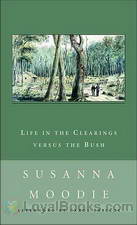 Life in the Clearings
Life in the Clearings
If you've read Margaret Atwood's Alias Grace, the historical fiction novel that describes a gruesome double murder in Canada in 1843, you would be interested to know the sources that were used by Atwood during her research. Life in the Clearings by Susanna Moodie was one such reference book in which the author, Susanna Moodie recounts her meeting with the infamous murderess Grace Marks, a young house help who was convicted to life imprisonment for her role in the slaying of her employers. Susanna Moodie was an Englishwoman born in Suffolk... | |
 Roughing It in the Bush
Roughing It in the Bush
'Roughing It In the Bush' is Susanna Moodie's account of how she coped with the harshness of life in the woods of Upper Canada, as an Englishwoman homesteading abroad. Her narrative was constructed partly as a response to the glowing falsehoods European land-agents were circulating about life in the New World. Her chronicle is frank and humorous, and was a popular sensation at the time of its publication in 1852. | |
By: Sutton and Sons | |
|---|---|
 The Culture of Vegetables and Flowers From Seeds and Roots 16th Edition
The Culture of Vegetables and Flowers From Seeds and Roots 16th Edition
| |
By: Sylvester Mowry (1830-1871) | |
|---|---|
 Memoir of the Proposed Territory of Arizona
Memoir of the Proposed Territory of Arizona
| |
By: T. F. Thiselton Dyer (1848-1923) | |
|---|---|
 Strange Pages from Family Papers
Strange Pages from Family Papers
“Among other qualities which have been supposed to belong to a dead man’s hand, are its medicinal virtues, in connection with which may be mentioned the famous ‘dead hand,’ which was, in years past, kept at Bryn Hall, Lancashire… Thus the case is related of a woman who, attacked with the smallpox, had this dead hand in bed with her every night for six weeks, and of a poor lad living near Manchester who was touched with it for the cure of scrofulous sores.” Though not all chapters have such gruesome subjects as The Dead Hand, all are full of a curious mixture of superstition and local history that will delight and amuse the modern listener. | |
By: T. H. Pardo de Tavera (1857-1925) | |
|---|---|
 The Legacy of Ignorantism
The Legacy of Ignorantism
| |
By: T. R. (Thomas Radford) Agg (1878-1947) | |
|---|---|
 American Rural Highways
American Rural Highways
| |
By: Talbot Hughes (1869-1942) | |
|---|---|
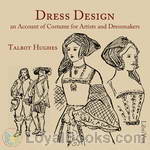 Dress Design: An Account of Costume for Artists and Dressmakers
Dress Design: An Account of Costume for Artists and Dressmakers
Explanations of Western European trends in men and women's fashion from prehistoric times to the Victorian Era. | |
By: Thames Williamson | |
|---|---|
 Problems in American Democracy
Problems in American Democracy
Problems in American Democracy is a very detailed, specific explanation of some of the underlying and surface problems of a democracy system of government, particularly of the American form of democracy. Though lengthy, it is a great read for people who want to learn more about different types of government and the foundations of our own government in the United States of America. | |
By: The Three Initiates | |
|---|---|
 Kybalion (version 2)
Kybalion (version 2)
The Kybalion: Hermetic Philosophy is a 1908 book claiming to be the essence of the teachings of Hermes Trismegistus, published anonymously by a group or person under the pseudonym of "the Three Initiates". The Kybalion was first published in 1908 by the Yogi Publication Society and is now in the public domain, and can be found on the internet. The book purports to be based upon ancient Hermeticism, though many of its ideas are relatively modern concepts arising from the New Thought movement. The book early on makes the claim that it makes its appearance in one's life when the time is appropriate and includes variations of material found in the book of Proverbs... | |
By: Theo. Stephenson Browne | |
|---|---|
 In the Riding-School; Chats with Esmeralda
In the Riding-School; Chats with Esmeralda
| |
By: Theodore Arnold Haultain (1857-1941) | |
|---|---|
 Hints for Lovers
Hints for Lovers
“Hints for Lovers” is a thorough analysis of relationships between men and women, about everything that lovers should know, and delves deep into the psychology of men and women, and the philosophy of courtship, engagement, kissing, making love, marriage, etc, in a light-hearted tone, with refreshing humor. | |
By: Theodore Roosevelt | |
|---|---|
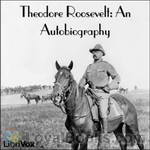 Theodore Roosevelt: An Autobiography
Theodore Roosevelt: An Autobiography
In his vital, illustrative and dynamic autobiography, Theodore Roosevelt let us into the life that formed one of the greatest and outspoken presidents in American history. Not only are we privy to the formation of his political ideals, but also to his love of the frontier and the great outdoors. | |
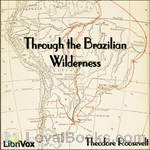 Through the Brazilian Wilderness
Through the Brazilian Wilderness
Roosevelt’s popular book Through the Brazilian Wilderness describes his expedition into the Brazilian jungle in 1913 as a member of the Roosevelt-Rondon Scientific Expedition co-named after its leader, Brazilian explorer Cândido Rondon. The book describes all of the scientific discovery, scenic tropical vistas and exotic flora, fauna and wild life experienced on the expedition. One goal of the expedition was to find the headwaters of the Rio da Duvida, the River of Doubt, and trace it north to the Madeira and thence to the Amazon River... | |
 The Naval War of 1812
The Naval War of 1812
Somewhat detailed history of naval engagements between the United States and England during the War of 1812, from a decidely American perspective. Completed by the author as a young man at age 24. After 120 years, it remains a standard study of the war. | |
 Hunting the Grisly and Other Sketches
Hunting the Grisly and Other Sketches
| |
By: Théodule Ribot (1839-1916) | |
|---|---|
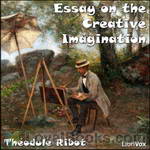 Essay on the Creative Imagination
Essay on the Creative Imagination
“It is quite generally recognized that psychology has remained in the semi-mythological, semi-scholastic period longer than most attempts at scientific formulization. For a long time it has been the “spook science” per se, and the imagination, now analyzed by M. Ribot in such a masterly manner, has been one of the most persistent, apparently real, though very indefinite, of psychological spooks. Whereas people have been accustomed to speak of the imagination as an entity sui generis, as a... | |
By: Theron Q. Dumont (1862-1932) | |
|---|---|
 The Power of Concentration
The Power of Concentration
Though he wrote more than 100 books during his lifetime, Theron Q Dumont is largely a forgotten entity today. In fact, Theron Q Dumont is not even his real name. It is a pen-name adopted by William Walker Atkinson, an American polymath, who began his career as a grocer's assistant in nineteenth century Baltimore, studied law and went on to amass fame and fortune as a successful legal luminary. However, disaster struck when he suffered a nervous breakdown due to over strain and he lost everything that he had earned... | |
By: Thomas a Kempis (1380?-1471) | |
|---|---|
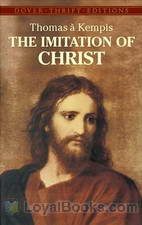 The Imitation of Christ
The Imitation of Christ
The Imitation of Christ is widely considered one of the greatest manuals of devotion in Christianity. The life of Christ is presented as the highest study possible to a mortal, as Jesus’ teachings far excel all the teachings of the saints. The book gives counsel to read the scriptures, statements about the uses of adversity, advice for submission to authority, warnings against temptation and how to resist it, reflections about death and the judgment, meditations upon the oblation of Christ, and admonitions to flee the vanities of the world. A recording of a Dutch translation of this work is also available (Thomas a Kempis was Dutch but wrote in Latin of course). | |
By: Thomas Anderson (1819-1874) | |
|---|---|
 Elements of Agricultural Chemistry
Elements of Agricultural Chemistry
| |
By: Thomas Babington Macaulay (1800-1859) | |
|---|---|
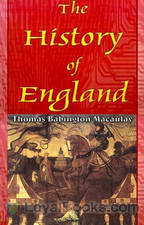 The History of England, from the Accession of James the Second
The History of England, from the Accession of James the Second
Hailed more as a literary masterpiece than an accurate account of historical facts, The History of England from the Accession of James the Second by Thomas Babington Macaulay is an admirable mix of fact and fiction. Modern day readers may find much that is offensive and insensitive in this five volume work which covers a particular period in the long and eventful history of Britain. However, it is certainly a book that leads the reader on to further research into the events and people mentioned... | |
By: Thomas Barker (fl. 1651) | |
|---|---|
 The Art of Angling Wherein are discovered many rare secrets, very necessary to be knowne by all that delight in that recreation
The Art of Angling Wherein are discovered many rare secrets, very necessary to be knowne by all that delight in that recreation
| |
By: Thomas Barlow Wood (1869-1929) | |
|---|---|
 Story of a Loaf of Bread
Story of a Loaf of Bread
According to the author in the preface, he has "ventured to write this little book with some diffidence, for it deals with farming, milling and baking, subjects on which everyone has his own opinion." The earlier chapters give a brief sketch of the growing and marketing of wheat, followed by chapters on various aspects that impact the quality of wheat, the baking process and the characteristic of the final product, bread. The author aimed at making the reader realise that the farmer’s share in the production of the staple food of the people is by no means the simple affair it appears to be. - Summary by Leni | |
By: Thomas Browne | |
|---|---|
 Religio Medici and Hydriotaphia
Religio Medici and Hydriotaphia
Religio Medici (The Religion of a Doctor) sets out Sir Thomas Browne's spiritual testament as well as being an early psychological self-portrait. In its day, the book was a European best-seller. It was published in 1643 by the newly-qualified physician, and its unorthodox views placed it swiftly upon the Papal Index Librorum Prohibitorum in 1645. Although predominantly concerned with Christian faith, the Religio also meanders into digressions upon alchemy, hermetic philosophy, astrology, and physiognomy... | |
By: Thomas Carlyle | |
|---|---|
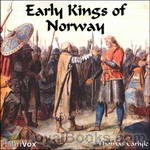 Early Kings of Norway
Early Kings of Norway
“The Icelanders, in their long winter, had a great habit of writing; and were, and still are, excellent in penmanship. It is to this fact, that any little history there is of the Norse Kings and their old tragedies, crimes and heroisms, is almost all due. The Icelanders, it seems, not only made beautiful letters on their paper or parchment, but were laudably observant and desirous of accuracy; and have left us such a collection of narratives (Sagas, literally “Says”) as, for quantity and quality, is unexampled among rude nations... | |
By: Thomas de Quincey (1785-1859) | |
|---|---|
 Miscellaneous Essays
Miscellaneous Essays
The Hunter Thompson of the 19th Century, de Quincey is best known for his Confessions of an English Opium Eater (an activity shared with his hero, Samuel Coleridge, much to Wordsworth’s dismay). However, de Quincey’s literary genius is best captured in his essays, and, according to Wikipedia: His immediate influence extended to Edgar Allan Poe, Fitz Hugh Ludlow and Charles Baudelaire, but even major 20th century writers such as Jorge Luis Borges admired and claimed to be partly influenced by his work. | |
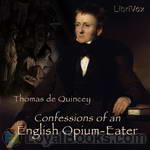 Confessions of an English Opium-Eater
Confessions of an English Opium-Eater
“Thou hast the keys of Paradise, O just, subtle, and mighty Opium!” Though apparently presenting the reader with a collage of poignant memories, temporal digressions and random anecdotes, the Confessions is a work of immense sophistication and certainly one of the most impressive and influential of all autobiographies. The work is of great appeal to the contemporary reader, displaying a nervous (postmodern?) self-awareness, a spiralling obsession with the enigmas of its own composition and significance... | |
By: Thomas Dowler Murphy (1866-1928) | |
|---|---|
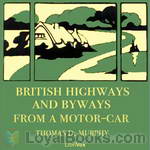 British Highways And Byways From A Motor Car
British Highways And Byways From A Motor Car
In this chronicle of a summer's motoring in Britain I have not attempted a guide-book in any sense, yet the maps, together with the comments on highways, towns, and country, should be of some value even in that capacity. I hope, however, that the book, with its many illustrations and its record of visits to out-of-the way places, may be acceptable to those who may desire to tour Britain by rail or cycle as well as by motor car. Nor may it be entirely uninteresting to those who may not expect to visit the country in person but desire to learn more of it and its people. (Introduction by Thomas Dowler Murphy) | |
By: Thomas D’Arcy McGee | |
|---|---|
 Popular History of Ireland
Popular History of Ireland
Book 1: Thomas D’Arcy McGee was an Irish refugee and a father of the Canadian confederation. His work on Irish history is comprehensive, encompassing twelve books; Book 1 begins with the earliest modern settlement of Ireland and ends with the 8th century. | |
By: Thomas Forsyth Hunt (1862-1927) | |
|---|---|
 The Young Farmer: Some Things He Should Know
The Young Farmer: Some Things He Should Know
| |
By: Thomas Gilbert Pearson (1873-1943) | |
|---|---|
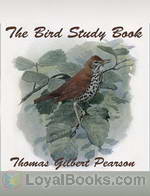 The Bird Study Book
The Bird Study Book
Do you enjoy birdwatching? Would you like to learn a little more about the early conservations efforts to protect wild birds? In the Preface to The Bird Study Book, Pearson tells us “This book was written for the consideration of that ever-increasing class of Americans who are interested in acquiring a greater familiarity with the habits and activities of wild birds. Attention is also given to the relation of birds to mankind and the effect of civilisation on the bird-life of the country. ” An avid ornithologist, T... | |
By: Thomas H. Burgoyne (1855-1894) | |
|---|---|
 The Light of Egypt, vol II
The Light of Egypt, vol II
"The Light of Egypt" will be found to be an Occult library in itself, a textbook of esoteric knowledge, setting forth the "wisdom Religion" of life, as taught by the Adepts of Hermetic Philosophy. It will richly repay all who are seeking the higher life to carefully study this book, as it contains in a nutshell the wisdom of the ages regarding man and his destiny, here and hereafter. The London and American first edition, also the French edition, Vol. I, met with lively criticism from Blavatsky Theosophists, because it annihilates that agreeable delusion of "Karma" and "Reincarnation" from the minds of all lovers of truth for truth's sake. | |
By: Thomas Henry Huxley (1825-1895) | |
|---|---|
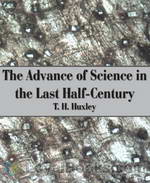 The Advance of Science in the Last Half-Century
The Advance of Science in the Last Half-Century
Thomas H. Huxley, an English biologist and essayist, was an advocate of the theory of evolution and a self-proclaimed agnostic. A talented writer, his essays helped to popularize science in the 19th century, and he is credited with the quote, “Try to learn something about everything and everything about something.” In The Advance of Science in the Last Half Century, he presents a summary of the major developments in Physics, Chemistry and Biology during the period 1839-1889 and their impact on society, within the historical context of philosophical thought and scientific inquiry going back to Aristotle... | |